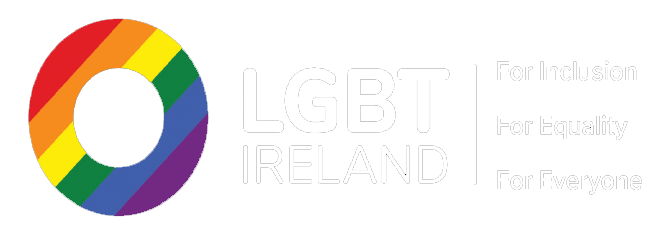For many of us our LGBT friends are like a second family, our chosen family. This article looks at the how the LGBT community, in all of its richness and diversity, is as important as it ever was, in supporting people to be themselves and to find a place they can feel at home!
Author Paula Fagan
In the five years that I’ve been coordinator with the national LGBT Helpline I’ve had the privilege of working with hundreds of volunteers. Our volunteers come from all walks of life and are a diverse group of LGBT people. However, they all have one thing in common, they all, to a person, became volunteers to give something back to their community. Motivated by the struggles they have faced around their own sexuality and/or gender identity, they volunteer to support other LGBT people through difficult times.
In this year of the centenary of the Easter rising, James Connelly springs to mind. On the meaning of family, he said, “Family is about the stronger members of the family looking after the most vulnerable members.” Those values certainly seem to be a driving force in the LGBT Helpline and in other LGBT organisations and groups all across the country. We are there for one another, not because we have to be, but because we know what it is like to feel alone. We know how it feels to be unsure or unable to get the support we need from our own families. And when we do find the LGBT community, in whatever form it takes, how good it feels to finally be ourselves.
Jason, one of our volunteers, put it this way, “I’ve had a lot of support from my friends in LGBT community and this was my way of giving something back and being an ear for those who need it when there’s no one else. To hear someone say something like “Thank you, you’ve really helped!” as we say our goodbyes, is the most intense and heart-warming feelings you’ll ever get. To know you made a difference is incredible.”
While many LGBT people have very strong and supportive relationships with their immediate families, it is still common place for many others to experience numerous challenges and difficulties due to a lack of family support. In 2015, we had the busiest year we’ve ever had in our services, with over 77,000 people looking for information and support. Family and relationship problems, ranked the second most common reason why people contacted us through our helpline for support. As the nation debated the issue of Marriage Equality, we heard the views of our families, friends, neighbours and colleagues, on same sex marriage and sexuality. In the majority, these conversations were positive, and came as a welcome surprise to some of our callers. However, it was also an incredibly stressful time, particularly for those who were not open about being gay, lesbian, or bi. Many calls came from people seeking support to deal with negative attitudes expressed by family members, for others it was seeking help to cope with ongoing difficulties, including being excluded from their families because of their sexuality or gender identity.
As human beings, it is important to our mental health and well-being that in some part of our lives we feel secure, and experience a sense of belonging, protection and love. In the recently published LGBTIreland study 2016, the report noted that the majority of participants aged 26 and over were doing well and reported good self-esteem, happiness and life satisfaction as well as being very comfortable with their LGBTI identity. The role of the LGBT community figured prominently, with happiness and pride being derived from a sense of inclusion, belonging, and support from engagement with that community. The LGBT community was mentioned as a source of practical social support and friendship, but also in a more general sense of community or moral support deriving from its existence and activism. However, the study also found that a very significant number of those aged under 25 did not experience the same levels of positive mental health and wellness1.
All of this evidence tells us clearly, that despite the wonderful progress we have achieved in LGBT rights and recognition in recent years, our community remains as important as it ever was. We are a family unlike any other. Through our successes and celebrations, obstacles and challenges, we have formed unique bonds that go beyond the traditional definition of “family.” As our community evolves we need to make sure that we remain there for one another, in all of our diverse identities. That we continue to work to improve the experiences for LGBT people of all ages and build a future where young people can feel positive about their sexuality and gender identity whatever that may be.
As we enter into the season of Pride celebrations, be proud of your LGBT family, be there for one another and make that incredible difference!
1. The LGBTIreland Report: national study of the mental health and wellbeing of lesbian, gay, bisexual, transgender and intersex people in Ireland. GLEN & Belong To, 2016.

